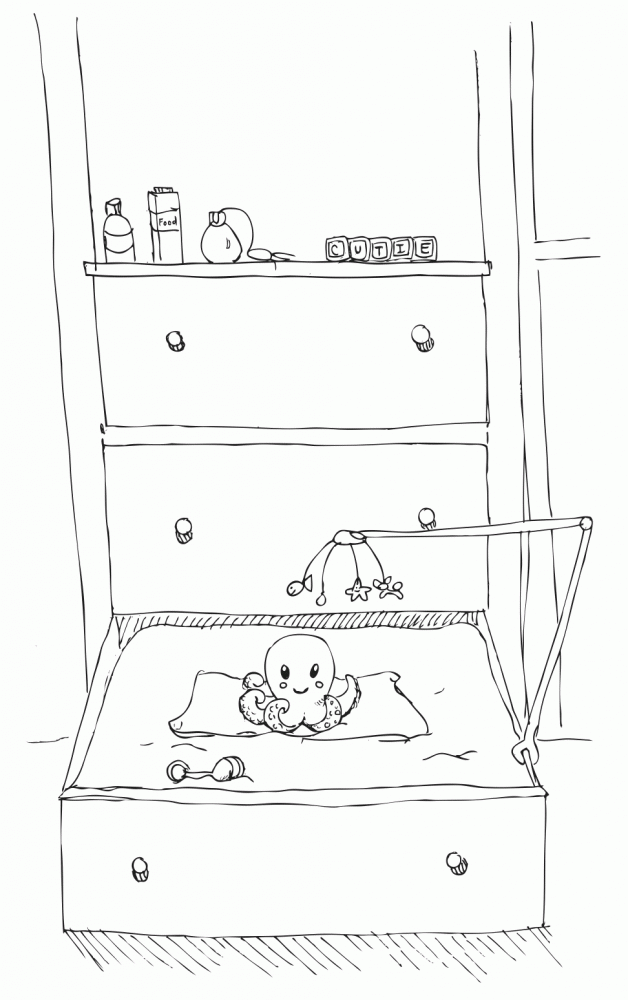Rocktopi Baby: Raising an Infant Octopus in AU’s Dorms
MTV’s Teen Mom suggests how scary parenthood can be – especially when living with Mom and Dad. Why stay at home when there’s learning and parenting to be done? Accommodating an octopus in a standard 12 by 15 foot dorm room, while also living with a roommate and maintaining a social life, might seem farfetched, if not impossible. But follow these simple steps and it will be a breeze. Octopi are imaginative. They will not know that their early upbringing was untraditional. Instead, these octopodes, henceforth known as dorm octopuses, will be well adjusted to their life style.
*Living Arrangements:* Do it Benjamin Button style. Octopuses under the age of two can sleep comfortably in the standard dorm drawer. If you feel this is unfair, face it—octopuses will not remember where they slept when they were 6 months old. Just whip up a quick mobile out of TDR silverware (spoons are preferable, forks and knives are unadvisable), hang it above them, and they’ll be all set. Dorm octopuses will also squeal, waking up their parents up. Sounds terrible, right? Wrong. Built-in alarm clock.
*Daytime Octocare:* Friends are perfect octositters. Make a friend who loves octopi, and avoid block classes so sitters are needed for less than two hours. Plenty of college students would jump at the chance to play with an octopus for an afternoon. Currently, the Octopus Development Center on campus focuses on two- to six-year-old sea creatures of campus faculty and staff, but talk to the administration about getting your octopus one of the highly competitive spots.
*Food:* Request that TDR let octopuses dine on a half or maybe even quarter swipe. It is a fact universally acknowledged that octopuses eat anything you feed them, as long as it is pureed. Simply purchase a blender (available at Target for $19.99) and feed them normal meals, mechanically predigested. You’ll be surprised at how familiar your mac and cheese Wednesday feast appears once the process is complete. Remember, boiled vegetables are not only delicious, they are also especially nutritious.
*College Dads:* Don’t worry! There might be slightly less public support for young single fathers than young single mothers, but an octopus should prove to be a successful girl-magnet—just remember your parental duties. The experience of parenting will help fathers get in touch with their sensitive side and learn to be responsible. Employers will appreciate the dedication, professors prefer responsible students and, most importantly, potential dates will love a guy who can be compassionate.
*College Prep:* Dorm octopuses will be smarter than their traditional counterparts thanks to their direct exposure to academics, especially if they listened to lectures in utero. Further, the soothing voices of monotone professors across campus are likely to keep dorm octopi continuously calm. If your octopus is accepted at the Octopus Development Center, consider chalking the experience up as an early volunteer opportunity that may eventually develop into an internship, and a great addition to any future college resume.
The high stakes, high-pressure environment of college is an unconventional, yet beneficial community for any octopus to experience youth. Educated from birth, these independent dorm octopodes will grow up to be well-rounded geniuses.
Illustration by Carolyn Becker







